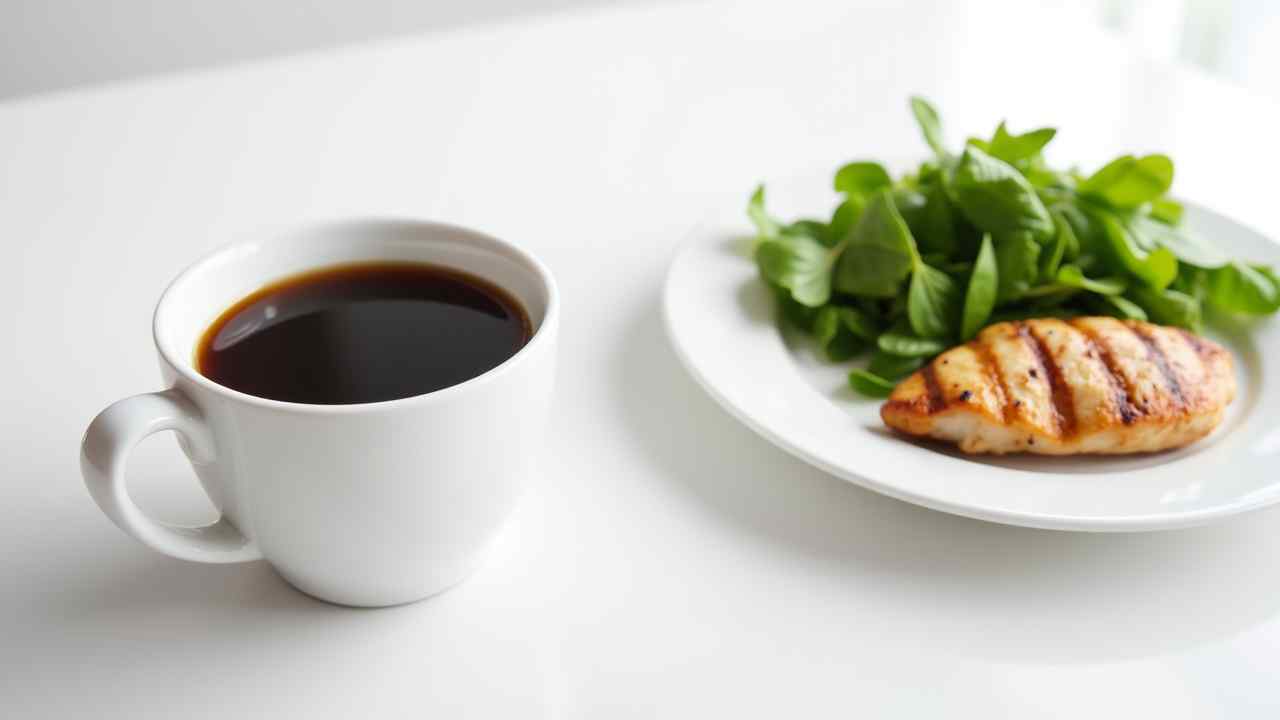
☕ What is the Coffee Diet? A Guide to the Plan, Benefits & Risks
☕ What is the Coffee Diet? (A Guide to the Plan, Benefits & Risks) ☕
Coffee is one of the most popular beverages in the world. It is known for its ability to boost energy and focus. This has led to the creation of the "coffee diet." It is a weight-loss plan that puts coffee front and center.
The diet was popularized by Dr. Bob Arnot's book. It claims that drinking coffee can help you lose weight. This is supposedly by boosting your metabolism and burning fat. But how does it really work? And is it safe?
This guide will explore the details of the coffee diet. We will look at its principles, its potential benefits, and its significant risks. Let's separate the buzz from the science. 🤔
Disclaimer: This is a restrictive plan high in caffeine. Always consult with a doctor before starting any new diet, especially if you have a health condition.
🤔 What is the Core Principle of the Coffee Diet?
The coffee diet is more than just drinking coffee. It is a combination of high coffee intake and calorie restriction. The plan has a few key rules. These are meant to be followed for a set period.
The main rule is to drink at least three cups of black coffee per day. The diet specifically recommends using lightly roasted coffee beans. This is because they are claimed to be higher in polyphenol antioxidants. The coffee must be black, with no sugar or cream.
This coffee consumption is paired with a healthy, low-calorie diet. The food plan is typically around 1,500 calories per day. It focuses on whole foods like lean protein, vegetables, and fruits. Processed foods are eliminated.
✅ What Are the Purported Benefits of this Diet?
Proponents of the coffee diet claim several benefits. These are mostly tied to the natural properties of caffeine. The diet uses these effects to support weight loss. Here are the main claims.
Can It Suppress Your Appetite?
Yes, caffeine is a known appetite suppressant. Drinking coffee throughout the day may help you feel less hungry. This can make it easier to stick to the low-calorie eating plan. It can help reduce snacking between meals.
Does It Boost Your Metabolism?
Caffeine can temporarily increase your metabolic rate. This means your body burns slightly more calories at rest. While this effect is real, it is generally small and not a magic bullet for weight loss. The main driver of weight loss is the calorie deficit.
Is Coffee a Good Source of Antioxidants?
Yes, coffee is very rich in antioxidants called polyphenols. These compounds can help fight inflammation in the body. A diet rich in antioxidants is beneficial for overall health. This is a recognized benefit of drinking coffee.
⚠️ What Are the Significant Risks and Side Effects of a High-Caffeine Diet?
This is the most important part to consider. A diet that encourages high caffeine intake has serious risks. The coffee diet is not suitable for everyone. These are the major downsides.
Can Too Much Caffeine Be Harmful?
Absolutely. The recommended three cups can easily become too much. Excessive caffeine can cause jitters, anxiety, and heart palpitations. For people sensitive to caffeine, this diet can be very uncomfortable and unsafe.
Does it Affect Your Sleep?
Drinking coffee, especially in the afternoon, can severely disrupt sleep. Poor sleep is linked to weight gain and hormonal imbalances. This makes the diet counterproductive for long-term health. Good sleep is essential for weight loss. 😴
Is It a Sustainable Plan?
No, the coffee diet is not a sustainable lifestyle. The weight loss comes from the strict calorie restriction, not the coffee. Once you stop the diet, you are likely to regain the weight if you return to your old habits. It does not teach balanced, long-term eating patterns.